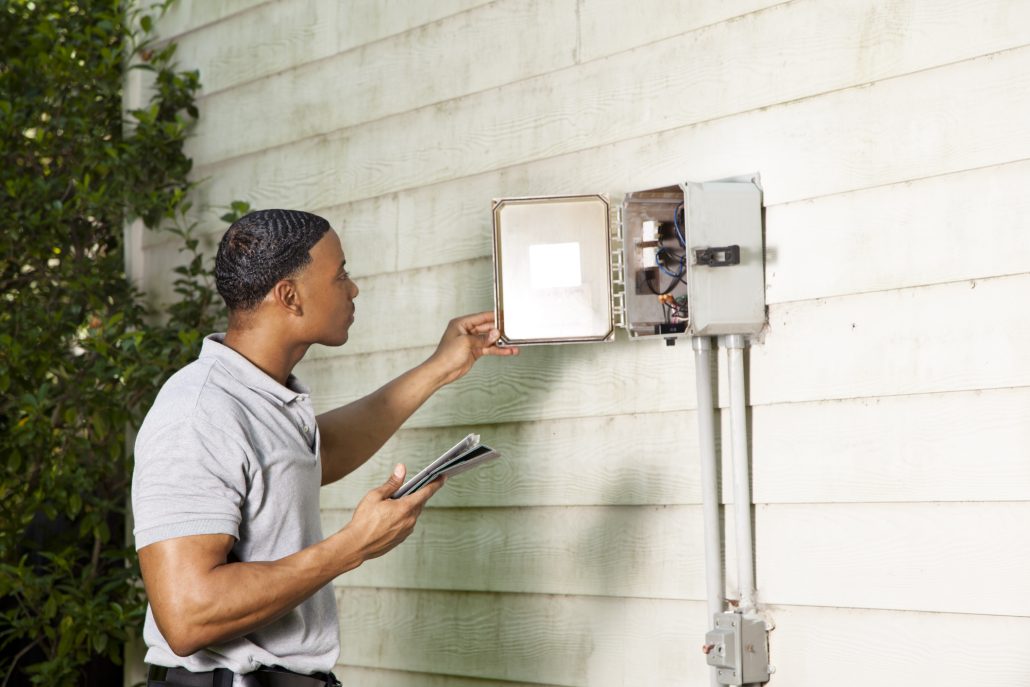Let’s Talk Home Inspection

Many homebuyers who find their dream home want the security of knowing their new living space will be safe and worry-free. That’s where a home inspector comes in.
If you have negotiated an inspection as a contingency in your contract, waiting out the inspection itself can sometimes be stressful.
Because the home has been presented to accentuate its highlights and shadow its flaws, bringing in a trained professional after an offer has been accepted is always recommended. A home inspection can prevent unwanted surprises and costly repairs down the road while ensuring the safety of you and your family.
Why You Might Want a Home Inspection
By getting an inspection, you have gained the ability to negotiate repairs, find pre-existing problems, or opt out if the issues are too vast. In addition, home inspections can help buyers have greater peace of mind during an otherwise often stressful time.
Post-inspection, you can rest assured knowing the home is safe and ready to be purchased.
We’re talking to you too, sellers. Learning about any possible issues or immediate repairs before putting your house on the market could alleviate stress while creating a much smoother purchasing process.
A pre-posting home inspection will give sellers some added confidence when countering an offer that’s a bit lower than what you’re hoping for.
Finding A Home Inspector
Keep in mind that some states lack a licensing process for home inspectors. If your state does not have criteria, find an inspector in good standing with a nationally recognized organization like the American Society for Home Inspectors.
At the end of your inspection, you’ll know about any of the “skeletons” in your home’s closets, and you could have a reason to re-negotiate your initial offer.
If the seller has taken the extra step to inspect the home before the sale, it’s still important to do your due diligence as a buyer. Not wanting to accept the seller’s inspection report at face value is entirely fair.
However, if the seller has had the home pre-inspected, they might not accept a contingency offer. In this case, a buyer that insists on an inspection will have to find the inspector and pay out of pocket.
What to Expect During Your Home Inspection
So what happens during a home inspection?
Plan a couple of hours as your inspector will look in every room in the home, check appliances, and verify structural integrity. They also check the home’s exterior for issues with the roof or outdoor structures.
They’re looking for any problems that would violate city or state codes and ordinances. They check for gas leaks and ensure that water and electricity are operational.
Typical failures during a home inspection include faulty wiring or roofing issues. Based on the age of the home, some inspectors will drop a video camera into the sewer system and piping to verify the materials in the pipes.
Many home inspectors will also note damages that may have eluded the buyer. For example, an inspector might notice broken stucco or a cracked gutter system that the buyer hadn’t seen.
Inspectors are also looking for internal and external environmental damage. Is there mold inside the home? Some inspectors perform an air quality test to check for mold spores and harmful gasses like carbon monoxide. Has landscaping changed the drainage around the property, which could cause flooding?
Talk to your home inspector while scheduling to find out if the buyer, seller or both are allowed to be at the property during the inspection.
After the Home Inspection
Once you get the notes and final report from the inspector, you might be tempted to start buying furniture for your new home. But pumping the breaks is almost always a good idea until your loan closes.
If the inspector documents significant flaws in the home, the buyer and seller can discuss what should be taken care of before closing day. In some cases, the seller may be willing to negotiate a lower price so the buyer can handle repairs after purchasing the home.
Feel free to ask your inspector as many clarifying questions as necessary to understand their notes and report. A seller may dispute some “problems” on a report, while a buyer may think that every notation is a significant concern.
It’s important to remember that an inspector can’t deem a home or property “passed” or “failed.” The report is simply information about the home’s overall condition based on structural integrity and area ordinances. The information taken from that is yours — as the buyer or seller — to make educated decisions about your major home purchase.
Tags: First-time homebuyer, second-time homebuyer
Categories: First Time Homebuyer, Home Buying, Second Time Homebuyer


